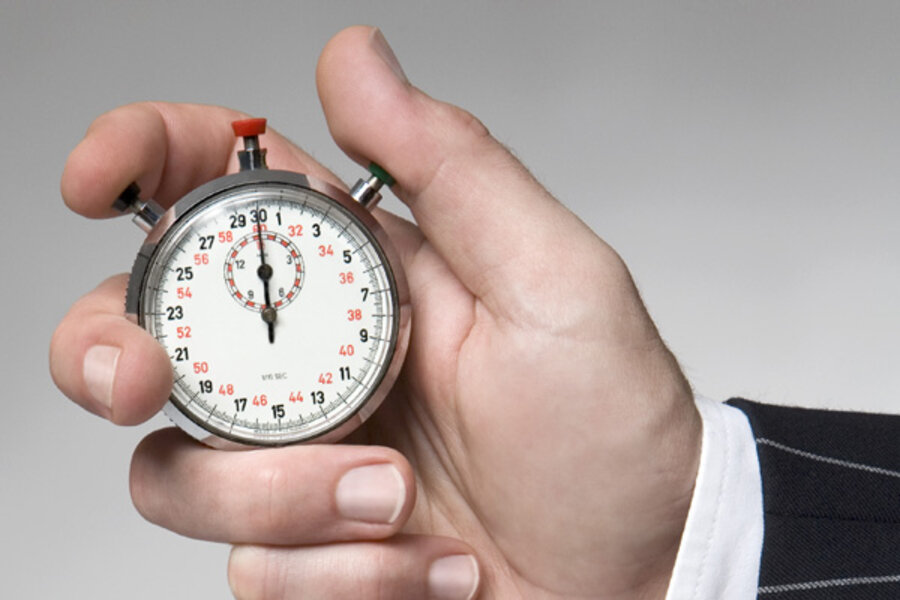How fast is your Internet connection? Ask the FCC.
Loading...
Internet connection speeds can be a vague concept to many people. Cable and phone companies advertise specific broadband numbers, but how fast is six megabits? And are you getting what you paid for? The Federal Communications Commission (FCC) wants to help.
The government agency recently launched a free broadband speed test. It measures upload and download times – in other words, how fast your computer sends and receives information. (The two numbers can differ wildly.)
This four-part test also clocks "latency" – the round-trip speed from your PC to a server and back – and "jitter" – whether that latency figure fluctuates or not, which affects video steaming and Internet phones calls.
"The FCC's new digital tools will arm users with real-time information about their broadband connection and the agency with useful data about service across the country," FCC Chairman Julius Genachowski says in a statement.
Americans should stay on top of these measurements, Mr. Genachowski adds, because Internet service providers (ISPs) have been known to fudge advertised connection speeds. Last September, officials reported to the FCC that "actual speeds were estimated to lag by as much as 50 percent during busy hours."
Once you run the test, do it again. These online tools are accurate, but connections are never 100 percent consistent. Running the broadband trial multiple times can help provide an average. (The process only takes a few moments.)
When you get a sense of the range, here's how to read the results.
"Upload" and "download" will be measured in kilobits per second. For confusing reasons, file sizes come in kilobytes, and speeds come in kilobits, which are one-eighth the size. So, a 1000 kilobits connection (about one megabit) will download 125 kilobytes of data each second.
Compare these speeds to the promises made by your Internet provider. If they don't match up, give the company a call and try to figure out why, or consider changing ISPs. You can also contrast your results with other PCs in the house or with neighbors. That may reveal faulty cables or sluggish Wi-Fi routers that act as the weakest link. Also, compare it to the Monitor's list of the states with the fastest Internet speeds to see if you're clocking above average.
"Nobody talks about latency and jitter, and that is a shame," writes MuniWireless.com. "For high quality video conferencing, less than 20 ms of jitter is best. Latency under 30 ms is excellent."





